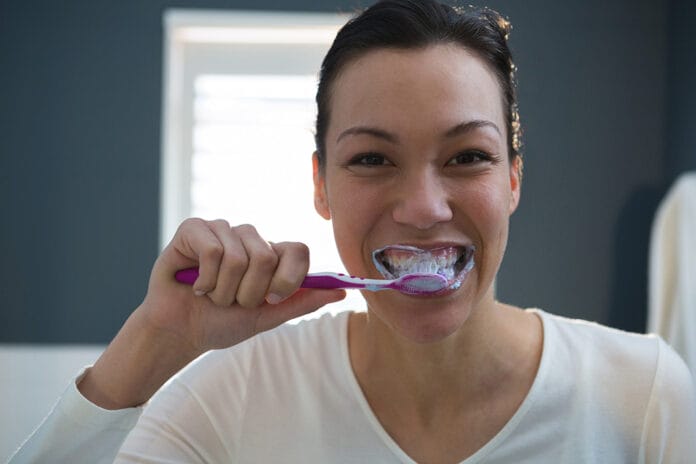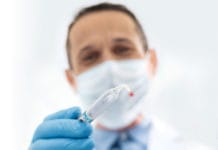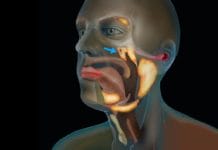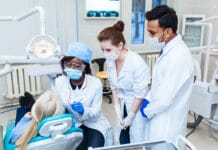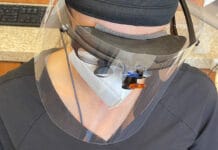It’s the 21st century, and one would think that ‒ with the advancement of technology and the surplus of knowledge and research in the dental industry ‒ oral health across the nation would be at its utmost best. However, recent studies prove this erroneous theory and leave dental professionals like me in collective disarray.
Any dental professional who has spent even the smallest amount of time in their career will have most likely heard the recounting of personal dental stories from individuals who are 60+ years old. From my experience, many of these individuals did not seek dental treatment often, if at all, because of financial burdens and a lack of dental education. In an era where dental insurance did not exist and with an income that required a strict budget, dental necessities were often placed on the back burner. Because of the lack of dental advancement, appointments were often painful, leaving the individual with a negative lasting impression.
Fast-forward to the present, where dental offices are equipped with licensed, educated professionals surrounded by the most advanced technology to ensure efficiency and painless dentistry. Countless studies have been performed to corroborate the mouth-to-whole-body connection, giving us the nuggets to understand just how important oral health is. Oral care tools and accessories have evolved, and we now have a plethora of items to choose from to keep our oral hygiene up to par.
So why are millennials (ages 26-41) failing to keep their dental health in check?
Oral Health of Millennials
Recent studies have confirmed that one-third of millennials admit to only brushing once per day, and the average millennial has gone over two days without brushing at all.1 The study went on to look into the factors as to why millennials avoid the dentist altogether. Studies report that 27% of millennials are uncomfortable going to the dentist compared to 23% of respondents 55 years and older, and 56% of millennials have simply made an excuse not to go to the dentist compared to the 36% of those 55 years and older.1
Fear definitely plays a factor in going to the dentist, with half of the study participants stating they were afraid of the dentist, listing fear of pain as the number one reason (74%.).1 Millennials also appear to be a little choosy, as nearly a quarter stated they refrained from going to the dentist simply because they did not like the flavors of the products used.2
However, most of these excuses have existed for years among all ages. There must be something more that keeps this particular age group from visiting the dentist and falling victim to a statistic that casts a bleak shadow on their oral health future. The American Dental Association conducted a survey on millennials, and two of the most common reasons stated for staying away from the dentist were cost and inconvenient time and location.3
Millennials are partial to a world of convenience through technology and are privy to cost comparison and ordering from their smartphones. The medical field has adapted to the world of convenience by offering tele-visits at all hours of the day from the comfort of home. Dentistry is slow to jump on that bandwagon and will be limited in their abilities when they do.
Unlike baby boomers, millennials are also less likely to have a personal relationship with one single provider but rather prefer to shop around for the most cost-effective and convenient location. According to one study, nearly half of adults ages 18-64 had private dental coverage, but 22% of those still did not see a dentist over the past 12 months.7 Currently, 92% of dentists are practicing privately.3 When polled, millennials stated they would be highly interested in receiving dental care in a retail setting such as CVS and Walmart due to convenience.3
Despite avoiding the dentist and statistically having unkept oral hygiene, millennials definitely agree that teeth affect one’s appearance. The State of the American Mouth Report states that 64% of millennials agree that bad teeth can have a negative impact on personal life.4 In regards to dating apps, not all millennials will be quick to swipe left when someone’s smile is unappealing; however, 43% agree that good teeth are associated with good sex.4 A social experiment went on to confirm that people using dating apps (74% millennials) are 60% more likely to message someone with a full, healthy smile versus someone with a yellow, gapped smile.5,6
A Hassle-Free Dental Appointment, Please
If I am being totally transparent, I do not see a whole lot of room for accommodation. Dental appointments and treatment are not cookie-cutter, and allowing patients to book online may prove to be difficult. Each appointment is tailored to each individual’s needs, and allowing patients to book online or through an app would create issues within the schedule. While dental professionals work hard to stay on time, occasionally, things beyond our control will affect our schedule, which may result in longer than 10-minute wait times.
In regard to convenience, more dental offices offer more convenient hours ‒ such as opening earlier and staying later, to accommodate those who prefer to come outside work hours. I have even seen larger city dental offices open on the occasional weekend!
Dental professionals can only continue to push forward with patient education and stress that an ounce of prevention is worth a pound of cure. According to the most recent Centers for Disease Control and Prevention, 25.9% of those ages 20 to 44 have untreated dental caries.8 If we can help patients understand that coming to the dentist more routinely will save them money by preventing and treating problems as they arise, we can hopefully slowly break the barrier of untreated tooth decay and dental absenteeism.
While some offices may not be fond of programs that allow patients to finance their dental treatment, it is certainly helpful to those without dental insurance. By offering or creating their own programs, dental offices may help encourage the uninsured to finally make that dental appointment.
The simple matter is millennials want an efficient, hassle-free experience from start to finish. Creating and obtaining convenient appointments, shorter wait times on arrival, and affordable treatment are all attributes they desire. While I, too, can relate to the convenience and desire for a hassle-free appointment, I also place a higher value on a personal relationship with my dental provider, whom I can trust to provide quality care.
Before you leave, check out the Today’s RDH self-study CE courses. All courses are peer-reviewed and non-sponsored to focus solely on high-quality education. Click here now.
Listen to the Today’s RDH Dental Hygiene Podcast Below:
References
- Hello Team. (2019, April 25). How Millennials Do – or Don’t – Brush Their Teeth. Hello Products. https://www.hello-products.com/friendly-blog/infographic-how-millennials-brush-teeth/
- Paul, S. (2018, February 23). Millennials Are Terrible at Keeping Their Teeth Clean. New York Post. https://nypost.com/2018/02/23/millennials-are-terrible-at-keeping-their-teeth-clean/
- Hembree, D. (2017, March 28). Why Some Millennials Aren’t Smiling: Bad Teeth Hinder 28% In Job Search. Forbes. https://www.forbes.com/sites/dianahembree/2017/03/28/why-some-millennials-arent-smiling-bad-teeth-hinder-28-in-job-search/?sh=1588b80d59c6
- Nearly 90% of Americans Believe Bad Teeth Negatively Impact One’s Life but Choose Streaming Over Smiles; Millennials Equate Better Teeth with Better Sex, Study Finds. (2019, February 5). Markets Insider. https://markets.businessinsider.com/news/stocks/nearly-90-of-americans-believe-bad-teeth-negatively-impact-one-s-life-but-choose-streaming-over-smiles-millennials-equate-better-teeth-with-better-sex-study-finds-1027925059
- Social Experiment Shows Bad Teeth Are a Dating Turn-off. (2016, October 18). Daily Mail. https://www.dailymail.co.uk/femail/article-3844442/Social-experiment-shows-bad-teeth-dating-turn-off.html
- MacWilliam, B. (2022, October 15). 66 Key Millennial and Gen Z Dating Statistics in 2022. Briana MacWilliam. https://brianamacwilliam.com/millennial-gen-z-dating-statistics/
- Blackwell, D., Villarroel, M.A., Norris, T. (2019, May). Regional Variation in Private Dental Coverage and Care Among Dentate Adults Aged 18–64 in the United States [NCHS Data Brief No. 336]. Centers for Disease Control and Prevention. https://www.cdc.gov/nchs/products/databriefs/db336.htm
- Oral and Dental Health. (2022, October 20). Centers for Disease Control and Prevention. https://www.cdc.gov/nchs/fastats/dental.htm

